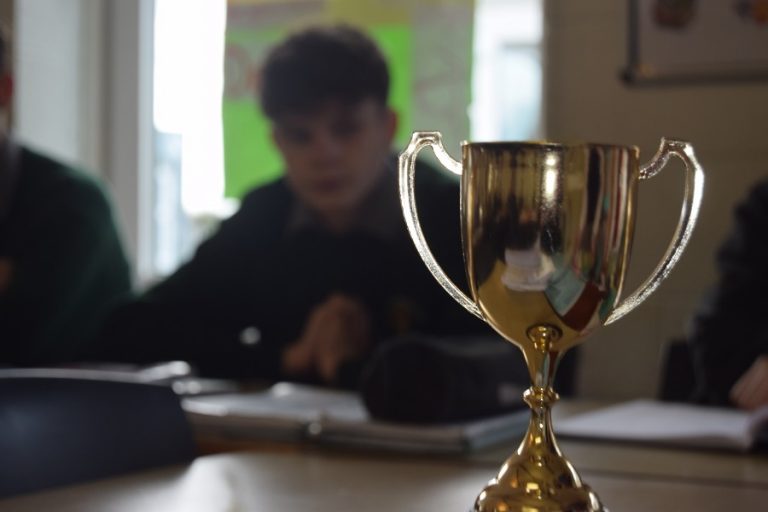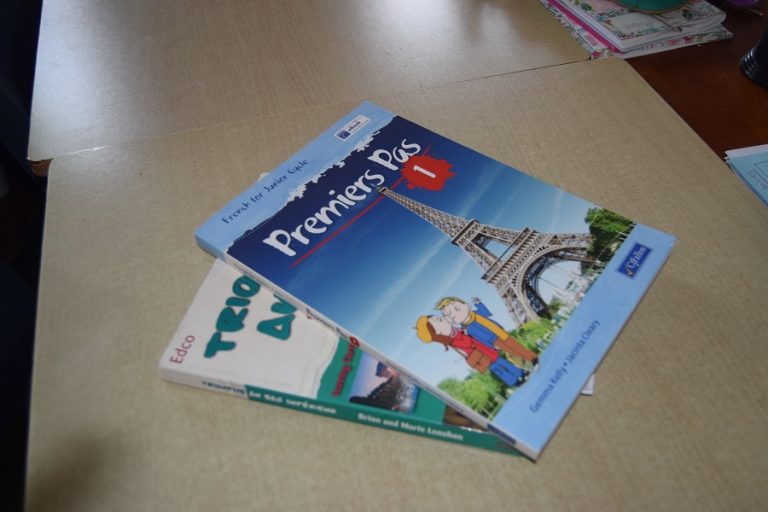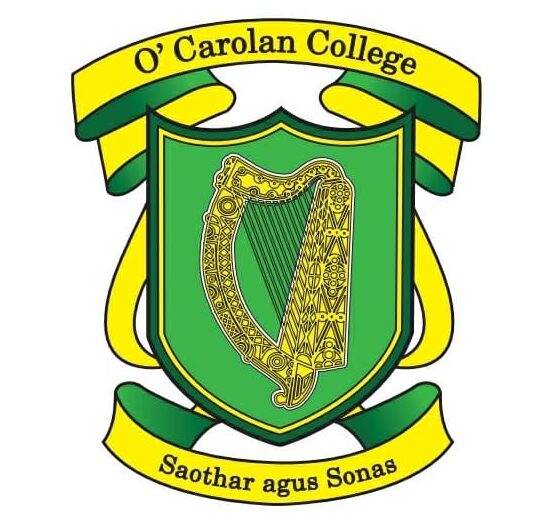French


Department members:
Annicke Ni Gadhra, Regina Mulligan, Helen McAlister, Hannah Rooney and Karen Smith
Department Coordinator – Annicke Ní Gadhra
Department Mission Statement
The aim of the French department is to equip pupils with the five language skills – listening, reading, spoken production, spoken interaction and writing. Students will become competent in the target language, develop the ability to reflect on their own learning and will be enabled to explore the interdependence between language and culture.
Provision of French in the school
All incoming pupils choose to take French or Spanish and continue with their chosen language to Leaving Certificate level. Pupils in the Junior Cycle have four periods of French per week, while Transition Year have three and Leaving Certificate Applied have two class periods. Fifth and Sixth Year students study French for five periods each week. All Junior Cycle classes are mixed-ability groups while Leaving Certificate students are divided into higher and ordinary level, based on their Junior Cycle results.
Planning, preparation and resources
There are weekly departmental meetings held in which textbooks, resources, in-career development, examinations and schemes of work are discussed. Various textbooks such as aural, oral and grammar books are used to cater for the five key skills and all students are shown the proper use of on-line dictionaries.
All French teachers are members of the French Teacher’s Association of Ireland and regularly attend in-service courses and conferences. We regularly receive training for the new Junior Cycle in Modern Foreign Languages and attend many online training courses to help with oral proficiency and preparation of CBA’s.
Teaching and Learning
Pupils from first to sixth year are prepared to become competent, creative and independent language learners, with a view to completing the Junior Cycle and Leaving Certificate exams. In the Junior Cycle, language skills are developed across three inter-related strands: communicative competence; language awareness; and socio-cultural knowledge and intercultural awareness. The Leaving Certificate course builds on these learning outcomes and aims to further develop learner autonomy. A range of varied teaching methods and active learning strategies are employed to cater for all abilities in a typical French class. These include individual and group activities, project work, role plays, creating displays, realia (authentic French literature and magazines), listening activities, puzzles and games, map reading and the use of ICT such as the internet, PowerPoint, DVDs, podcasts and on-line language games.
First Year
Throughout the three years or the Junior Cycle, students’ learning is based on the specific learning outcomes from the three strands: communicative competence; language awareness; and socio-cultural knowledge and intercultural awareness. In first year, students become familiar with the basic geography and culture of France. Pupils learn to introduce themselves in French and will cover the following topics – numbers, months, days, food, school subjects, animals, house, town and hobbies. Students keep a portfolio of various pieces of work and are encouraged to reflect on their learning as the year progresses. Teachers assess students’ learning in a number of ways, including oral presentations, project work, group assignments, aural exercises and written tests.
Second Year
In second year, students reinforce topics covered in first year and become more competent in reading, writing and speaking the language. They learn to write short messages, postcards and simple letters as well as developing the ability to read and interpret texts in French. They gain extra knowledge about France and its culture and are able to discuss differences between Irish and French ways of life. During this year, they also sit their first Classroom Based Assessment, which happens in January. This is an oral task (spoken production) and it takes place during class time. Various methods of assessment are employed throughout the year to ensure that all students’ competencies are promoted and celebrated. As well as their CBA, students sit end of term written tests.
On February 1st, all Second-year students travelled to the Irish Film Institute (IFI) in Dublin to see the French film ‘La petite bande’. Students thoroughly enjoyed the movie and it was great to see them experience a bit more of French culture beyond the classroom.
Speaking of expanding horizons beyond the classroom, we are just back from a wonderful trip to Bordeaux as part of our new French Exchange programme. 14 2nd year students took the brave plunge and by the end of the week in Bordeaux, they felt more confident and made some new friendships which will hopefully stand the test of time. We did a walking tour of Bordeaux with one of the French teachers as our trusty guide. It was so interesting to see the city from the perspective of a native. Students of O’Carolan also got a flavour of school in France and experienced not just English classes but also Chemistry and Maths! Students also got involved in a spectacular talent show with everything from Gaelic football and signing to Japanese Calligraphy! The French students loved getting a flavour of Gaelic football! We also visited the beautiful Arcachon, about an hour outside of Bordeaux which historically was a small harbour. Near to Arcachon were the sand dunes which were conquered by all even if Miss McAlister got slightly lost on the way back! We look forward to welcoming the French students and their teachers to O’Carolan College in October 2024.
Third Year
The main focus of French classes in third year is preparation for their second CBA, their Assessment Task and their Junior Cycle exam. Material from first and second year is revised and pupils learn to comprehend native French speakers conversing. A large emphasis is placed on listening exercises and oral preparation in groups. All students purchase a set of exam papers at the beginning of third year and practise exercises throughout the year, in preparation for their written examination in June.
This year, all Third Year students travelled to the Irish Film Institute in Dublin on April 9th, to view the French language film ‘la petite bande’. Everyone thoroughly enjoyed the French movie and the trip to the capital, a first for some.
Transition Year
The main objective of Transition Year French is to improve the basic skills acquired during the Junior Cycle and to create a foundation for the Senior Cycle. During Transition Year, pupils studying French have the freedom to explore new tastes and experiences in the language. Students gain a better insight into French culture and are stimulated though the use of authentic materials. There is a focus on the oral exam during this year and students also prepare the ‘document’ element of their Leaving Certificate oral exam. Other themes taught during the year include: la francophonie, le film, l’année de transition et la musique contemporaine et l’art français. Students also studied modules in Spanish as part of their modern language learning experience this year.
Senior Cycle French
During Fifth and Sixth Year, students’ knowledge of the topics developed at Junior Cert and TY is deepened through the continued exploration of these areas at Leaving Cert. In senior cycle French, students develop their understanding and application of the grammatical system. They learn to manipulate the target language accurately to organise facts and ideas, and to present explanations, opinions and information in both speech and writing.
The oral exam comprises of general conversation questions and the presentation of a ‘document’. Students sit a mock oral exam in February/March and the Leaving Certificate oral exam takes place during the Easter holidays.
The breakdown of the Leaving Certificate French exam is as follows:
Higher level:
| Oral | Aural | Reading Comprehension | Written expression |
|---|---|---|---|
| 25% | 20% | 30% | 25% |
Ordinary level:
| Oral | Aural | Reading Comprehension | Written expression |
|---|---|---|---|
| 20% | 25% | 40% | 15% |
